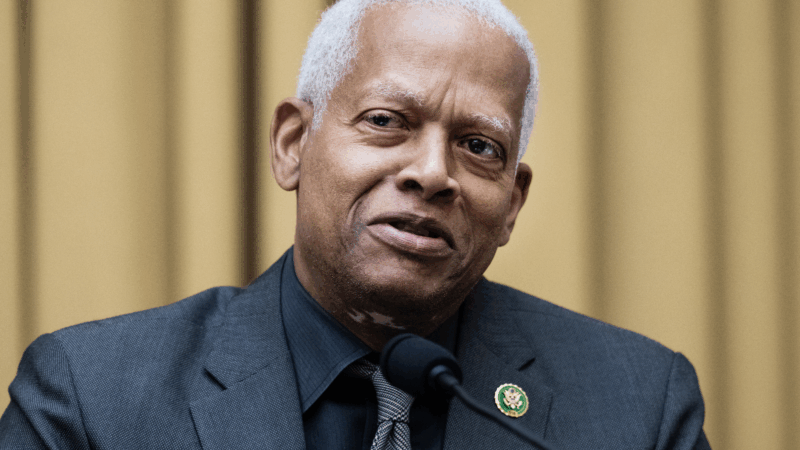Judges would be accountable for abuse even if they retired or resigned, under new bill
A top lawmaker is introducing legislation that aims to increase accountability for federal judges accused of misconduct and abuse.
The new bill from Rep. Hank Johnson, D-Ga., would ensure that pending investigations into judicial misconduct would continue, even if the judges under review retire or resign.
Johnson is trying to close a loophole that federal judges have used to collect pension benefits despite facing credible accusations of wrongdoing by employees.
“Judges and courts should not be allowed to sweep bad behavior under the rug,” said Johnson, the top Democrat on the House Judiciary Committee’s panel on the courts. “This is a necessary first step in ensuring that our courts are places of integrity and safe for judiciary employees.”
His legislation, called the Transparency and Responsibility in Upholding Standards in the Judiciary Act (TRUST), follows an NPR investigation that uncovered serious problems with the federal judiciary’s system for reporting problems in the workplace.
It’s unclear if the legislation would go anywhere in a GOP-controlled Congress. But it highlights ongoing issues in the federal court system.
Two judges featured in NPR’s reporting, José Antonio Fusté in Puerto Rico and Judge Alex Kozinski in California, retired with full benefits while under internal investigation.
“The proper functioning of our courts depends on an accountable judiciary,” said Debra Perlin, vice president for policy at Citizens for Responsibility and Ethics in Washington (CREW). “The judiciary must investigate potential breaches of the public trust, and we urge Congress to pass this important legislation to require it to do just that.”
Some 30,000 people work for the judicial branch, including in judges’ chambers, clerks’ offices and in public defenders and probation offices.
The federal courts are exempt from Title VII of the Civil Rights Act of 1964, complicating a path for law clerks and other judicial employees to seek justice when they face abuse from judges. The courts say they have made significant changes to their internal system for reporting since the #MeToo movement emerged seven years ago.
“We believe that the changes put in place over the past seven years have had a positive impact on the Judiciary workplace, a belief that was validated by two independent studies,” a spokesperson for the Administrative Office of the U.S. Courts told NPR in a written statement earlier this year. “We continue to make improvements as part of our efforts to foster an exemplary workplace for our employees.”
In March, the courts released the results of a national workplace study, where almost two-thirds of respondents reported they had not experienced inappropriate behavior at work.
But the findings also raised questions about whether workers feel secure using the courts’ own tools for reporting abuse. Only 42% of the anonymous respondents said they would report misconduct at work. And others who used the reporting system said they were not satisfied with it.
The courts are considering more changes to their system, including giving employees a way to recover legal fees and damages.
How George Wallace and Bull Connor set the stage for Alabama’s sky-high electric rates
After his notorious stand in the schoolhouse door, Wallace needed a new target. He found it in Alabama Power.
FIFA president defends World Cup ticket prices, saying demand is hitting records
The FIFA President addressed outrage over ticket prices for the World Cup by pointing to record demand and reiterating that most of the proceeds will help support soccer around the world.
From chess to a medical mystery: Great global reads from 2025 you may have missed
We published hundreds of stories on global health and development each year. Some are ... alas ... a bit underappreciated by readers. We've asked our staff for their favorite overlooked posts of 2025.
The U.S. offers Ukraine a 15-year security guarantee for now, Zelenskyy says
Ukrainian President Volodymyr Zelenskyy said Monday the United States is offering his country security guarantees for a period of 15 years as part of a proposed peace plan.
Genre fiction and female authors top U.S. libraries’ most-borrowed lists in 2025
All of the top 10 books borrowed through the public library app Libby were written by women. And Kristin Hannah's The Women was the top checkout in many library systems around the country.
The Best Tiny Desk Concerts of 2025
Which Tiny Desk made an audio engineer question everything? Which one made a producer want to cry? Touch grass? Look back on the year in Tiny Desk, with the people who make them.








